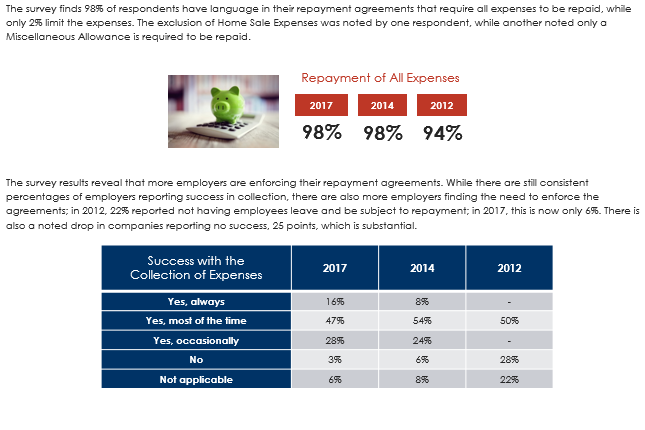Repayment Agreements
More than ever before, employee mobility is viewed as an inevitable function of business growth and talent development. Getting the right person in the right place is a human capital investment, but it is also a financial investment, and employers look to protect their investments.
One way that companies can protect the financial investment of relocating an employee is to require a repayment agreement, also referred to as a payback or clawback agreement. If an employee who is relocated decides to voluntarily terminate their employment (quit) or be terminated for cause -- within a certain period to time -- the employee will be expected to repay some or all of the expenses associated with his or her relocation. Employers wishing to reclaim expenses utilize a repayment agreement, an employee’s endorsement of their obligation to repay the expenses and the associated terms and conditions.
The Aires Pulse Survey – Repayment Agreements takes a look at the current utilization and enforcement of repayment agreements. Similar studies have previously been conducted by Aires in 2012 and 2014, allowing for comparison over the past five years to highlight trends and best practices.
Below is a sneak peek of the Repayment Agreements survey.

